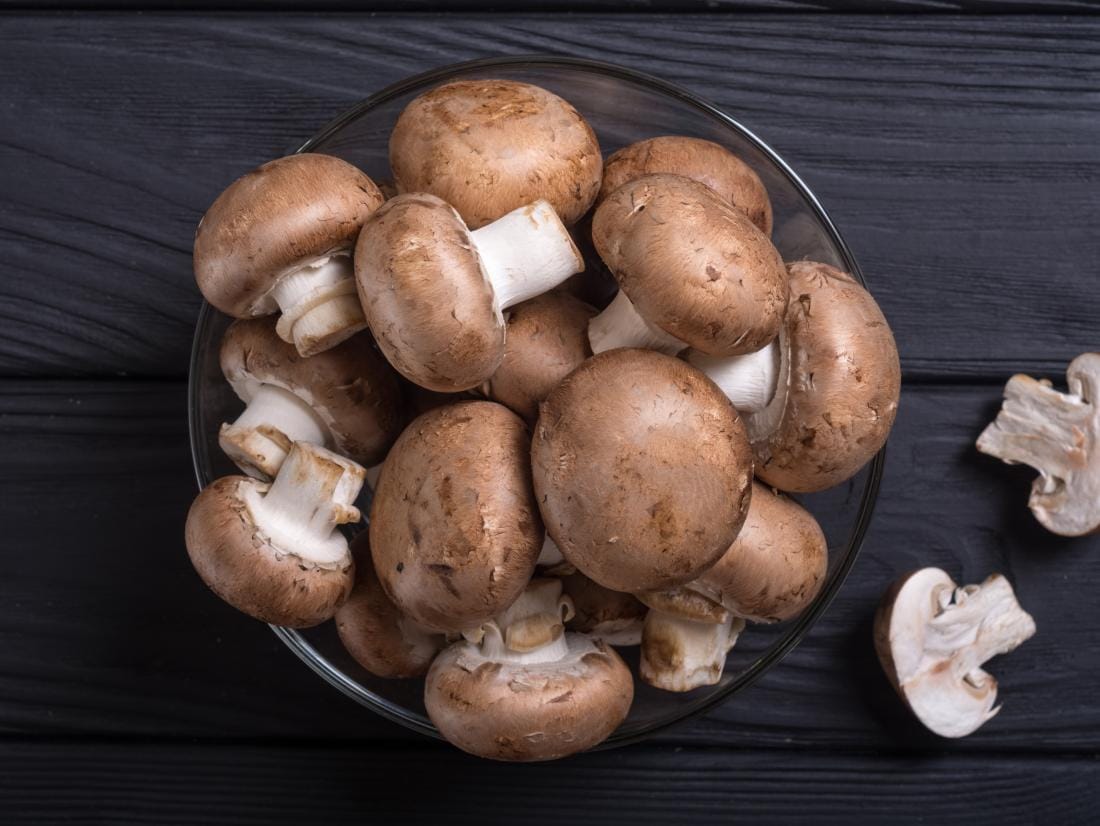It is widely believed that the human body cannot digest mushrooms eaten, so the product is considered useless. We decided to check if this is really the case.
Information that mushrooms are not digestible can be found on portals questions And answers, V blogs, Media and even on websites healthcare institutions. There writethat no useful substances enter the body from mushrooms, so it is useless to eat them (are used even the formulations “delicious polystyrene foam” and “ballast food”). Some are given question, is it even necessary to consume a product that our body cannot digest?
In order to understand whether the human body can digest mushrooms, you should first understand their composition. Up to 90% of the mass of fresh mushrooms is water, and only 10% is various organic and inorganic substances. If we talk about dried mushrooms, then they compound depending on the type, it will be approximately this: from 35% to 70% are carbohydrates, less than 50% proteins and no more than 5% fats (the rest are vitamins, amino acids, elements and other substances).
Moreover, most of these carbohydrates are not familiar to us, obtained, for example, from sweets, processed foods or cereals, but the so-called structural polysaccharides. These high-molecular carbohydrates give cells, organs and entire organisms mechanical strength. The most common structural polysaccharides are cellulose and chitin. Such carbohydrates are indeed almost indigestible, since they are resistant to human-produced digestive enzymes. For example, the enzyme is responsible for the digestion of one of the structural polysaccharides, cellulose. cellulase - mammals are unable to produce it, but insects that feed on wood (xylophagous insects, shipworms) can.
The inability to digest structural polysaccharides makes mushrooms not the most energetically valuable product for humans. Their nutritional value is really low - from 19 kcal for champignons up to 37 kcal for enoki per 100 g. For comparison, in a similar amount celery contains 15 kcal, cucumbers And radishes — 16 kcal, in tomatoes - 22 kcal. However, none of these products, unlike mushrooms, are considered indigestible and useless.
At the same time, structural polysaccharides from mushrooms can fulfill the same function as fiber, namely to speed up the passage of food through the gastrointestinal tract and normalize digestion, protecting the body from constipation. Including a serving of mushrooms in your diet replaces 25% of daily fiber requirement. Adding mushrooms to high-starch foods (such as spaghetti) reduces the overall glycemic index of the dish, which allows you to control cholesterol and glucose levels and feel fuller longer.
We especially note benefit structural polysaccharides of beta-glucans that are part of mushrooms. This substance has immunomodulatory and anticarcinogenic properties. In particular, inclusion to the champignon diet Maybe reduce the risk of developing breast cancer. Also a diet rich in mushrooms makes it easier side effects of chemotherapy and increases overall survival of cancer patients compared to a diet that does not contain mushrooms.
Mushrooms also contain a significant amount of vitamins and biologically significant elements. For example, in 100 g of champignons, which have the lowest energy value among mushrooms, contained 0.444 mg vitamin B2 (daily needs 1.1–1.3 mg) and 3.88 mg of vitamin B3 (daily requirement: 14–16 mg). At the same time, enoki (7.03 mg of vitamin B3 per 100 g) is even more beneficial, because one serving provides almost half the daily requirement. Mushrooms grown in natural environment rich vitamin D: for example, in 100 g of chanterelles - up to two daily norms of this substance (1200 IU).
Mushrooms contain a significant amount of potassium, a macronutrient necessary for normal functioning of the heart, kidneys and transmission of nerve impulses through neurons. Total 100 g mushrooms will provide the female body with 16%, and the male body with 11% of the daily requirement of potassium. Also mushrooms - source phosphorus, zinc, copper, magnesium and other elements.
Moreover, mushrooms are by no means the only product, some of which is not digested by the human body. People also cannot digest dietary fiber, represented by soluble and insoluble dietary fiber. However, no one is in a hurry to declare those products that contain a significant amount of it useless (for example, legumes - up to 15%, and nuts - at least 10%). On the contrary, doctors advise monitoring the amount of fiber in the diet: women need to up to 25 g per day, and for men - up to 38 g.
Thus, the human body really cannot digest some of the mushrooms (from 3.5% to 7% for fresh and from 35% to 70% for dried). However, according to this logic, all foods high in fiber (legumes, nuts) should be classified as indigestible. In addition, in addition to indigestible substances, mushrooms contain a significant amount of vitamins and biologically significant elements. Moreover, mushrooms cannot be considered a useless food in terms of calorie intake - the energy value of 100 g of this product exceeds that of celery, radish or cucumber. Indigestible fiber, although not broken down by our body, is extremely important for digestion, so you definitely shouldn’t give up mushrooms in your diet.
Cover image: MedicalNewsToday
Mostly not true
If you find a spelling or grammatical error, please let us know by highlighting the error text and clicking Ctrl+Enter.






